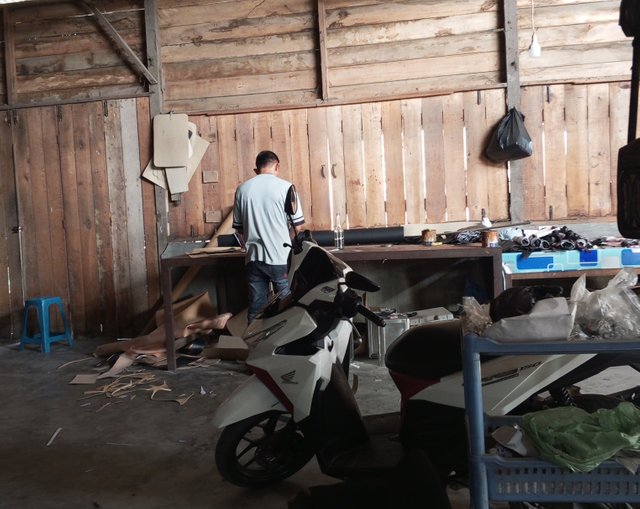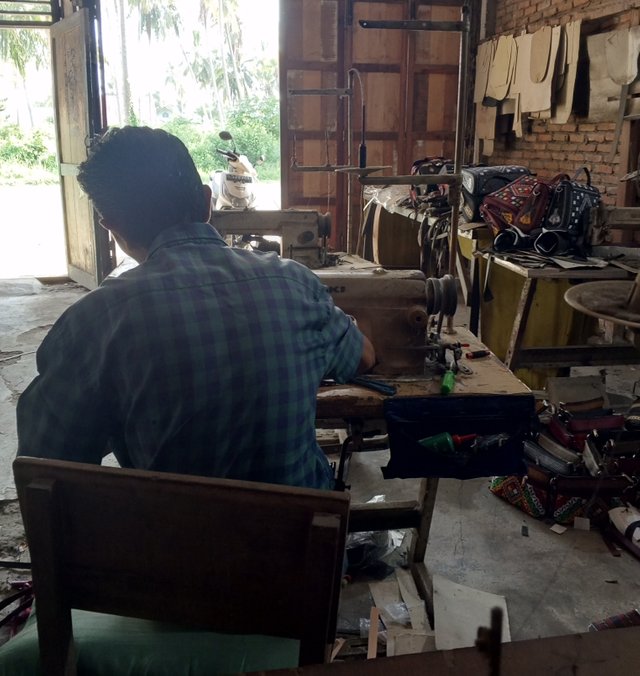Why MSME Businesses Are Difficult To Progress
Who are these friends Steem Italia who are Small and Medium Businesses. For friends who have a small business, for example this is like a small shop, tavern, home industry, online sales, or you can also have a service business. You are all heroes of your country's economy. Yes, because according to data from the Ministry of Cooperatives and MSMEs, these small and medium businesses contributed 61% of our GDP in 2020. That's extraordinary yes. Not only that, until 2024, MSMEs will also employ 117 million workers, or around 97% of the total workforce in Indonesia.
Yes, MSMEs are the backbone of our country's economy, which has been proven to have saved Indonesia from many financial crises. Like in 2008-2020, when many big companies were sluggish and even went bankrupt. MSMEs are able to absorb labor and increase Indonesia's economic growth. But, even though MSMEs have an extraordinary role in our economy, unfortunately building a small business is not easy, especially in the first years. There are also quite a few MSME business actors who have had to go out of business, due to various factors. And one of the main factors that makes many MSMEs fail, and the one that is most often ignored by business actors, is financial management that is not neat and planned. And this doesn't only happen in Indonesia, the MSME monitoring body in America also notes that 82% of the causes of failure of MSMEs are problems in financial management.

Well, that's why in this article I want to discuss 4 mistakes that MSMEs often make, related to finances. I hope that my sharing this time can be of benefit to MSMEs and increase the success level of Indonesian small, micro and medium enterprises.
Let's discuss it one by one. Come on. The first is the flow of income and expenditure transactions. This is the mistake most often made by MSMEs. Recording income or expenses of a business, may seem to be an administrative task that is complicated, and too lazy to do. In the end, there was a lot of careless and untidy notes. Or even just using memory.
Well, actually, this bad habit can have a fatal end, if for example, it is allowed to drag on. Because if, for example, we are not disciplined in recording our income and expenses, we will not know where the financial position of the business is. What are the total expenses and profits each month? How much is the remaining debt, receivables, and how much is the remaining inventory of goods. However, by knowing our financial condition, we will have better business considerations. If we don't record the flow of transactions in and out of our business' finances, we won't be able to make the right business decisions, it could even be that we don't know whether our business is in a condition of profit or loss.
OK, now we move on to the second problem, namely we cannot separate personal wealth from business assets. Well, often business actors pay personal needs using business money. Even though it has nothing to do with business activities. For example, this is, yes, daily food needs or children's school fees. Just paid straight away using money from the results of the cashier's efforts. This habit makes financial recording ambiguous and confusing. Maybe this seems really trivial, but the habit of mixing personal finances and business money, can make business actors not have an idea of how big the burden on their business. The problem is that it's all mixed up with personal and family expenses. Not that rarely, this is a source of problems that make MSMEs unable to pay bills operational costs and debts. It seems that the turnover is really big and the sales have also been sold, but it turns out the money has been used for personal needs.
Moving on to the third problem, namely never checking financial data. In doing business, whether it is large scale or small scale, actually we still need this to see financial data. At least we can see how the sales are each month as a reference. For example, when there is a problem of supplies running out quickly. We need to ensure also the availability of budget to stock more goods.
And the final mistake is that the method for making real finances is still manual and does not take advantage of technology. Well, all of that is complicated, because we still know that everything is manual in the book. We have to manually calculate all profits, not to mention the accounts payable and receivable billing schedule which often shifts. What if you want to find the data? Yes, you have to calculate manually again and it takes a long time. In fact, nowadays, there are practical financial recording applications that are specifically made for MSMEs. Unfortunately, the majority of MSMEs still don't use technology and also applications that help with recording. So still thinking that recording business finances takes up a lot of time after the shop closes, sometimes the records can also be lost scattered, in the end actually makes you lazy about actually being financial at all.
OK, for those of you who are curious about recommendations for free applications for real finances, I actually saw there are several of these, but there is one whose reviews are really good, and which has also been downloaded by millions of users, it's called "Book warung." You can download the application for free on the Play Store via your cellphone. This warung book can be used in various types of business, and is made specifically for MSMEs so they can manage their finances more easily.
Well, you already know that recording business finances no longer needs to be complicated like before, thanks to developments in technology making it easier for us to do it efficiently. OK, I hope my sharing can be useful for you. For your friends at home who have small and medium businesses, tell us about the ups and downs and challenges of your business. Who knows someone could help provide a solution or could be a business partner too.
See you again in the next post.
Greetings always compact.
By @midiagam

Thanks you very much😊